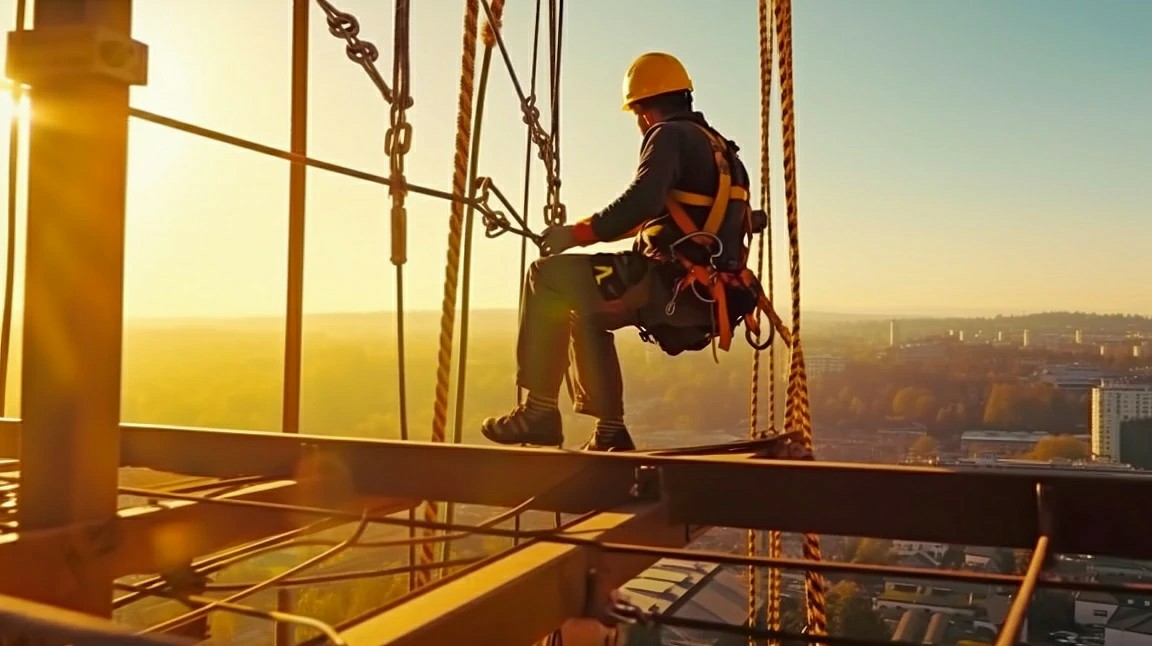Elevating Worker Safety: The Critical Role of Accredited Working at Heights Training
In industries where working at heights is an essential part of the job, ensuring the safety of employees is paramount. Businesses must recognize the critical importance of choosing accredited Working at Heights training courses to mitigate risks, comply with regulations, and ultimately safeguard their workforce. In this blog post, we will delve into the significance of accreditation from reputable organizations such as the HSA, HSE, and RoSPA, how it guarantees quality education, and the many benefits of prioritizing accredited training for your team.
Why Accreditation Matters in Working at Heights Training
Accreditation is a mark of quality and assurance, indicating that a training provider adheres to specific standards and regulations set by recognized industry bodies. Accredited Working at Heights courses not only fulfill legal requirements but also drive improvements in workplace safety and effectiveness.
Understanding HSA, HSE, and RoSPA
- HSA (Health and Safety Authority): The HSA is Ireland's national body responsible for ensuring that workplaces are safe and healthy. Their accreditation indicates that a training program meets high standards for safety and compliance.
- HSE (Health and Safety Executive): The HSE provides guidance, regulations, and training accreditation in the UK. Training endorsed by HSE ensures that employees are equipped with current best practices.
- RoSPA (Royal Society for the Prevention of Accidents): RoSPA offers training programs focused on reducing accidents and injuries, with a commitment to elevating safety practices across industries.
The Importance of Accredited Courses
Investing in accredited Working at Heights training offers numerous advantages that help businesses comply with legal requirements while promoting a culture of safety. Here are some key benefits:
- Compliance with Industry Regulations: Accredited courses help businesses adhere to national and international safety standards, demonstrating a commitment to employee health.
- Enhanced Worker Safety: Accredited training equips workers with the necessary skills to safely perform tasks at heights, significantly reducing the risk of accidents and fatalities.
- Legally Recognized Certification: Certificates obtained through accredited courses are often recognized in legal proceedings, providing an added layer of protection for employers.
- Improved Company Reputation: Choosing accredited programs enhances business credibility and showcases a commitment to safety, resonating well with clients, partners, and stakeholders.
The Risks of Non-Accredited Training
While there may be temptations to choose lower-cost, non-accredited training options, the risks involved can be significant:
- Increased Liability: Non-accredited programs may not comply with essential safety regulations, leaving businesses liable for violations and accidents.
- Inadequate Training: Providers without recognized accreditation may not offer comprehensive or current training, putting employees at risk during their operations.
- Potential Reputational Damage: Employees or clients who experience or witness safety issues may damage a company’s reputation, impacting business relationships.
Case Studies of Success
Many organizations have successfully improved their workplace safety records by investing in accredited Working at Heights training. For example:
- Construction Company A: After shifting from a non-accredited training provider to an HSA-approved program, this company saw a 40% reduction in falls from height over the next year.
- Logistics Firm B: By implementing a RoSPA-certified training course, employee compliance increased and so did worker morale, reflecting positively on productivity metrics.
Conclusion: Make the Right Choice for Your Team
Choosing to invest in accredited Working at Heights courses is not just a legal obligation; it's a vital decision that enhances the safety and well-being of your employees while bolstering your company’s reputation. By partnering with recognized training providers, you ensure that your team receives high-quality, compliant, and effective safety training. Don't compromise on safety—choose accredited training programs that promote a safer workplace.
To learn more about accredited Working at Heights training or to enroll in a course, visit Ireland Safety Training or contact us at [email protected].



 349,500 Offered Certificates
349,500 Offered Certificates
 24/7 Online Training
24/7 Online Training
 Money Back Guarantee
Money Back Guarantee
 Fully Accredited Courses
Fully Accredited Courses
